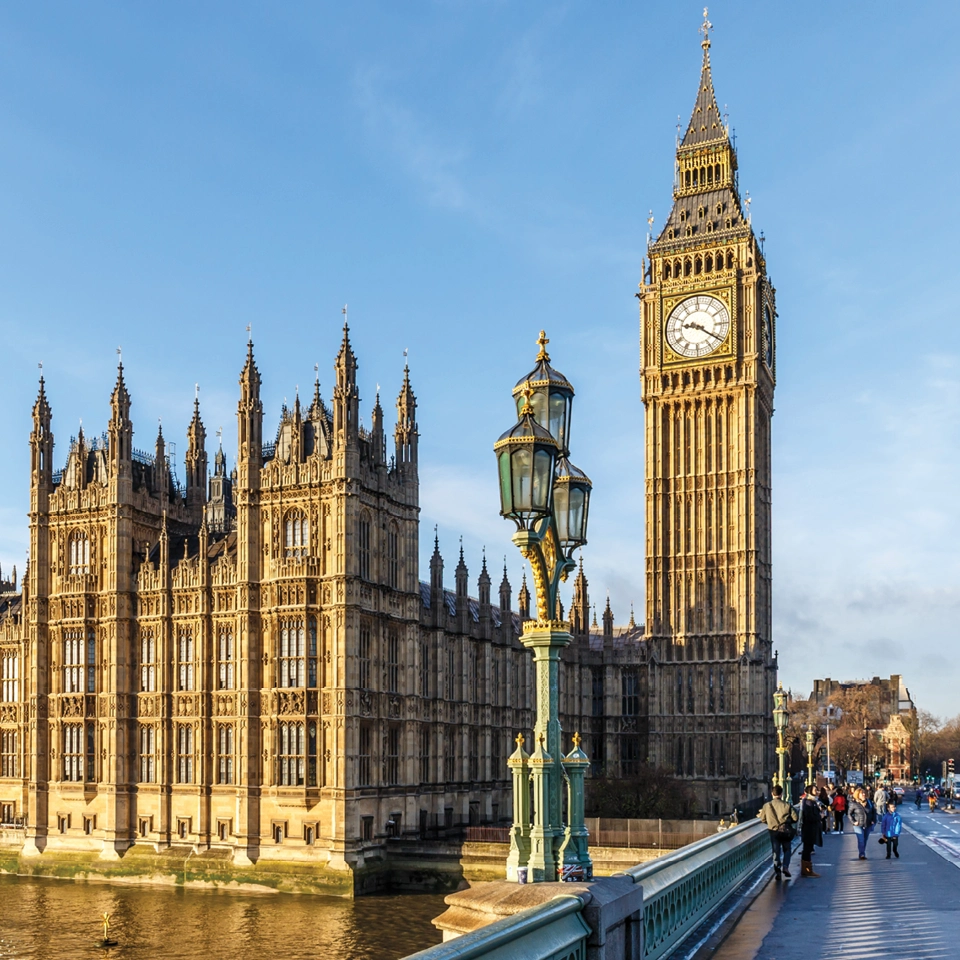Key takeaways from the Spring Budget 2024
The Chancellor of the Exchequer, Jeremy Hunt, delivered his Spring Budget today. From cuts to national insurance to further help with childcare costs, we take a closer look at some of the key announcements.
This article is not advice. If you would like to receive advice on your savings and investments, consider speaking to a Financial Adviser.

The Chancellor of the Exchequer, Jeremy Hunt, delivered his Spring Budget today, outlining his tax and spending plans for the year ahead, calling it the “budget for long-term growth.”
He said today's budget would mean “more investment, more jobs, better public services and lower taxes".
From cuts to national insurance to further help with childcare costs, we take a closer look at some of the key announcements.
1. The UK economy
Hunt outlined measures aimed at revitalising the UK economy and fostering sustainability. Among the key highlights, businesses are set to benefit from full expensing applied to leased assets. This allows businesses to offset investments in machinery and IT equipment against tax.
Additionally, the VAT registration threshold is set to rise from £85,000 to £90,000 from April, providing financial relief to “tens of thousands of businesses”, particularly small and medium enterprises.
Strategic investments took centre stage with a £160 million commitment to two nuclear sites. £120 million was allocated to green industries, fostering advancements in offshore windfarms and carbon capture and storage projects. This targeted approach helps position the UK as a leader in sustainable innovation, shaping a resilient and environmentally conscious future.
2. Inflation to fall faster than expected
Inflation is expected to dip below the government's 2% target “in just a few months’ time”, according to the latest forecast by the Office for Budget Responsibility (OBR).
This is a significant reduction from the 11.1% recorded when Hunt and Rishi Sunak assumed office in 2022, with notable alleviation in food and energy prices contributing to this decline.
The anticipated fall in inflation presents a favourable scenario for savers. As inflation decreases, the purchasing power of money tends to strengthen, meaning that the same amount of money can buy more goods and services.
Read more: understanding inflation, the base rate, and GDP
3. National Insurance cut by two percentage points
In a move that’s predicted to bring personal taxes to their lowest level since 1975, Hunt cut National Insurance for millions of workers by a further two percentage points.
- Employee National Insurance will be cut from 10% to 8%.
- Self-employed National Insurance contributions will be cut from 8% to 6%.
Hunt said, “it means an additional £450 a year for the average employee or £350 for someone self-employed. When combined with the autumn reductions, it means 27 million employees will get an average tax cut of £900 a year, and two million self-employed a tax cut averaging £650”.
Legislation will be rushed through parliament, so will come into effect from April. Find out how much you’d save with a 2p National Insurance cut, based on your annual income.
4. Introduction of a new British ISA
Hunt announced the introduction of a new British ISA, which offers savers an additional £5,000 allowance per year, specifically for investments in UK equities.
In an effort to encourage investors to ‘buy British’ and boost the economy, the ISA is likely to be popular with people who’ve already maxed out their ISA allowance and want to invest within the UK.
Hunt said, “this will be on top of the existing ISA allowances and ensure that British savers can benefit from the growth of the most promising UK businesses, as well as supporting them with the capital to help them expand.”
5. Commitment to free childcare
In what was labelled a “landmark offer”, Hunt announced his commitment to free childcare, pledging to sustain rates for childcare providers over the next two years. The assurance aims to counter the impact of inflation on providers’ budgets, enabling an additional 60,000 parents to join the workforce in the next four years.
The scheme, starting in April, will grant working parents of two-year-olds access to 15 hours of free childcare. This will be extended to working parents of all children older than nine months from September, ahead the full roll out a year later.
6. Lower CGT rate for second home sales
Hunt cut the higher Capital Gains Tax (CGT) rate on residential property and said Treasury and OBR analysis suggested a lower rate of tax would increase sales and boost revenue.
Higher-rate taxpayers currently pay 28% CGT on residential property profits, but this will be cut to 24%. CGT on property sales is paid on non-permanent residences, such as buy-to-lets, second homes and holiday lets. This move is expected to fire up the residential property market and support thousands of jobs that rely on it.
Grow your cash savings, with Flagstone
If your cash is sitting in an easy access account for convenience, you may not be seeing the return on your loyalty. This is an opportune time to look for alternative options that are offering more attractive rates.
At Flagstone, you get access to competitive and exclusive rates from 60 banks. High-interest savings rates not only help your money grow but also enable you to tame inflation by ensuring you're earning the highest possible returns.
Our cash deposit platform lets you view and manage your savings through one single account, making it more convenient to track balances, interest rates, and overall portfolio performance.
See how much you could earn on your savings.
Use our cash deposit calculator



